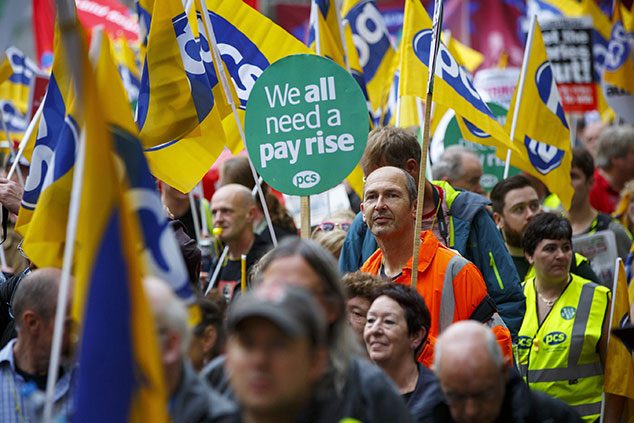
However, it turns out that in 2018, they might. Numbers out today show that UK wage rises are running at a 10-year high.
Last week, the Financial Times published a piece commiserating with companies “finding it harder to find the right workers.” With the unemployment rate now at 4% it seems that low unemployment is finally beginning to get wages moving – JD Wetherspoon, Royal Mail and Ryanair have all been complaining about rising labour costs, for example – and according to the FT the sectors that are feeling it the most are IT, construction, healthcare and hospitality.
Overall, seven in ten employers now say they are having difficulty in hiring workers, something that means the UK is suffering from “supply shock” says the Chartered Institute of Personnel and Development (based on a survey of 1,000 companies).
Rising wages are good for workers, productivity and public finances
There are a few important points to make here. The first is that when employers say they are having trouble hiring, odds are they mean “trouble hiring at the price we used to pay.” Wages have been very low in the UK for a long time now – and not rising anywhere near as fast as most people would like. You can blame all sorts of things for this – the tax credit system, which tops wages up and so lets companies off the living wage hook, and the huge influx of unskilled EU workers from 2004 on, perhaps – but either way the fact that supply is now tight and wages are rising as a result should be seen as a good thing. It might be painful for some companies, but workers will, I suspect, file it firmly under “about time too”.
The second point to make is that rising wages should be great news for our productivity – rising labour costs will encourage corporations to invest in labour-saving equipment (this also comes under “about time too”).
And finally, rising wages will be brilliant for public finances. Over the last decade the expansion of the tax credit system (soon to be part of universal credit) means that today there are more working households of prime working age (25-44) who are receiving cash benefits than own their own homes. Today, more than half of all Britons receive more in benefits and benefits-in-kind than they pay in tax, while some 750,000-odd households get thousands of pounds in tax credits even while earning over £20,000 a year (and remember that tax credits are tax-free income). Add it all up, says Ed Conway in The Times, in agreement with a view we have held here for a long time now, (see here, for example) and you will see that the UK is now more a “welfare democracy” than a home-owning one.
You could argue that this dynamic has been good for the UK since the crisis – if the benefits system hadn’t been meeting the difference between a warehouse wage and a living one, we wouldn’t have been able to keep our low-wage sectors and hence our economy ticking over for the last ten years. We’d also have seen rises in income inequality (which we haven’t).
But however you feel about it (I suspect it is the root of our productivity problem) wages rising enough to shift workers outside the cash benefits system is, by any measure, a good thing not a bad thing.
The final thing to think about is recruitment policy. A big part of the problem in the hospitality industry comes down to demographics, Kate Nicholls of Hospitality UK told the FT. About half the workers in the sector are under 30 and there are “far fewer 18 to 24 year olds entering the job market because of a dip in the birthrate around the turn of the millennium.” There is, she says, “a shortage of bodies.” Is there? Really?
The question that the industry might want to ask themselves is whether they might want to widen their searches a little. The hospitality industry lends itself beautifully to part-time working, something that works very well for older workers. Given that most of us remain pretty healthy well into our 70s these days (longevity isn’t making old age longer, it is making middle age longer), why not start actively aiming to recruit the over 60s in to work part time? Win win surely?
PS If we are lucky in the UK, we will soon get to the stage they are at in Japan. There, new jobs are so plentiful and seemingly well paid that a new business has started. Pay them $440 and they will call and resign from your old job if you are too embarrassed (or too lazy) to do it yourself.